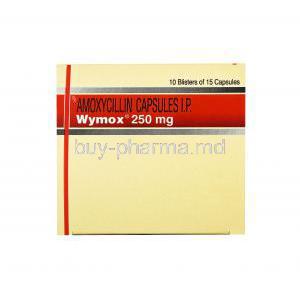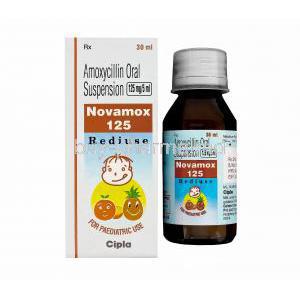Augmentin ES Oral Suspension
- Introduction to Augmentin ES Oral Suspension
- Â
- Composition of Augmentin ES Oral Suspension
- Â
- How Augmentin ES Works
- Â
- Uses of Augmentin ES Oral Suspension
- Â
- Off-Label Uses of Augmentin ES
- Â
- Dosage and Administration of Augmentin ES
- Â
- Administration Details Specific to Patient Groups
- Â
- Side Effects of Augmentin ES Oral Suspension
- Â
- Interactions of Augmentin ES with Other Medications
- Â
- Contraindications and Warnings
- Â
- Important Precautions While Using Augmentin ES
- Â
- Handling and Storage of Augmentin ES Oral Suspension
- Â
- Overdose and Emergency Procedures
- Â
- Handling Precautions for Augmentin ES
Introduction to Augmentin ES Oral Suspension
Augmentin ES Oral Suspension is considered an antibiotic treatment in the world of antimicrobial therapy. It is a version of amoxicillin that includes clavulanic acid to combat bacterial resistance. Over time, Augmentin ES has been improved to keep up with changing healthcare needs. Antibiotics such as Augmentin ES cannot be underestimated in medicine as they defend against various bacterial infections.
Composition of Augmentin ES Oral Suspension
Augmentin ES Oral Suspension combines two elements, amoxicillin, and clavulanic acid, in a synergistic blend. Amoxicillin, a derivative of penicillin, works to block the formation of cell walls. Clavulanic acid acts as a beta-lactamase inhibitor, broadening the antibiotic's reach by countering resistance mechanisms. The suspension is further enriched with components that stabilize it and enhance its taste for better acceptability.
- Fundamental Components: Amoxicillin trihydrate and potassium clavulanate.
- Clavulanic Acid Function: Enhances the effectiveness of amoxicillin by deactivating resistance enzymes.
- Additional Ingredients: Include flavors, sweeteners, and thickeners to improve taste and texture.
How Augmentin ES Works
Augmentin ES Oral Suspension interferes with the bacterium's ability to build a cell wall, destroying it. The combined effect of amoxicillin and clavulanate potassium is potent, enhancing the antibiotic's effectiveness against bacteria that would typically resist amoxicillin alone. Compared to antibiotics in its category, Augmentin ES shows better results in fighting a wide range of bacterial infections due to its unique dual-action formula.
- Action Mechanism: Prevents the synthesis of cell walls.
- Collaboration: Mixing amoxicillin with clavulanate broadens its capabilities.
- Effectiveness Comparison: successful against bacteria producing beta-lactamase compared to many other antibiotics.
Uses of Augmentin ES Oral Suspension
Augmentin ES treats various bacterial infections, especially those affecting the respiratory system, urinary tract, and skin. Its versatility is evident in its effectiveness in caring for and managing odontogenic infections when other medications prove ineffective. This antibiotic suspension is commonly recommended when milder treatments do not result in the desired effects.
- Respiratory Infections: Helps with sinusitis, pneumonia, and bronchitis.
- Urinary Infections: Effective, against cystitis and pyelonephritis.
- Skin Infections: Used for cellulitis, animal bites, and wound infections.
- Dental Uses: Prevents and treats infections related to abscesses and oral surgery.
Off-Label Uses of Augmentin ES
Augmentin ES, known for its approved uses, is also being utilized in unconventional ways. New research is pushing the boundaries of its effectiveness and safety in situations. Recent studies and real-world experiences from settings have shed light on its potential for treating a wider range of bacterial infections.
- Evidence from articles and clinical trials supports using Augmentin ES for non-standard treatments.
- Case studies provide documented examples of off-label use
- Endorsements from physicians highlight its effectiveness in unconventional therapies.
Dosage and Administration of Augmentin ES
When giving Augmentin ES Oral Suspension, the doses must be followed carefully, as they depend on the patient's age and the seriousness of the infection. Instructions on mixing and preparing the suspension are essential for its effectiveness and patient safety. Following the recommended timing and frequency of doses is critical to achieving the results.
- Dosage Recommendations; Guidelines for dosing based on age and type of infection.
- Preparation Steps: instructions for preparing the oral suspension.
- Dosing Schedule: Suggestions on how often and when to administer the medication.
Administration Details Specific to Patient Groups
The way Augmentin ES is administered varies significantly among demographic groups, so it's essential to customize approaches for kids, older individuals, and pregnant or nursing women. Each group needs considerations to ensure effectiveness and safety.
- For children: Dosages are adjusted based on weight and age to suit their growing bodies and metabolic rates.
- For the elderly: Close monitoring and potential dose adjustments are necessary due to kidney function issues or interactions with other medications.
- For nursing mothers: It's crucial to weigh the risks against the benefits of extra care to prevent any negative impact on the health of the fetus or newborn.
Side Effects of Augmentin ES Oral Suspension
While Augmentin ES proves effective against infections, it does come with its share of side effects. These can vary in intensity from mild to severe and require approaches to handling them. Being aware of these reactions is crucial for both patients and healthcare professionals.
- Common Side Effects; These may manifest as diarrhea, nausea and skin rashes.
- Managing Symptoms: Simple methods like staying hydrated and using over-the-counter remedies can help alleviate side effects at home.
In severe adverse reactions, immediate medical attention is necessary to prevent potential long-term health complications.
- Severe Side Effects: Watch out for symptoms like anaphylaxis, serious skin conditions, or liver problems that warrant medical care.
- Long-term Care: Patients with side effects require ongoing monitoring and management strategies.
Interactions of Augmentin ES with Other Medications
Augmentin ES Oral Suspension, like any other antibiotic, can interact with different medications, leading to changes in its effectiveness or causing unwanted reactions. Patients need to be aware of these interactions to prevent any complications in their treatment plans.
- Everyday Drug Interactions: These may involve interactions with blood thinners, methotrexate, and birth control pills, potentially requiring adjustments in dosage or closer monitoring.
- Augmentin. Alcohol: Drinking alcohol at the time might worsen side effects such as stomach discomfort and dizziness so it's best to avoid alcohol while undergoing treatment.
- Dietary Supplements and Over-the-counter Products: Supplements: like probiotics, specific vitamins, and herbal products, could also interact with antibiotics to impact their absorption or strength.
Contraindications and Warnings
Augmentin ES should be used carefully. Certain medical conditions and allergies can exacerbate adverse reactions, making it crucial to be aware of these contraindications before administering the medication.
- Contraindications to watch out for include renal impairment, a history of liver disease and known hypersensitivity, to penicillins or cephalosporins.
- Allergy warnings indicate that reaction signs may manifest as a rash, itching, swelling, or severe dizziness. Immediate medical attention is necessary if any of these symptoms occur.
Important Precautions While Using Augmentin ES
Ensuring Augmentin ES works effectively for treatment while reducing the chances of reactions involves taking essential precautions.
- Keeping an eye out for superinfections is necessary as prolonged use might cause the growth of organisms requiring regular checkups.
- Completing the prescribed treatment is vital to avoid the emergence of bacteria resistant to the medication.
- Using Augmentin ES wisely is recommended to prevent resistance from getting worse.
Handling and Storage of Augmentin ES Oral Suspension
Properly handling and storing Augmentin ES Oral Suspension is crucial to maintaining its effectiveness and ensuring safety. Following guidelines also keeps the medication potent throughout its recommended usage period.
- Storage Instructions: Augmentin ES should be stored at room temperature, shielded from light and moisture. The reconstituted suspension should be refrigerated, not frozen, and disposed of after ten days.
- Expiration. Disposal: Patients should be mindful of the expiry date. Dispose of unused medication correctly to prevent accidental ingestion or environmental harm.
Overdose and Emergency Procedures
Taking much Augmentin ES Oral Suspension can lead to serious health issues that require immediate attention. Knowing the signs and what to do in an emergency is essential for an effective response to reduce potential harm.
- Signs of an Overdose; Symptoms may include stomach problems, kidney issues and feeling confused.
- Immediate and Treatment: The first steps should involve supporting the symptoms. Suppose necessary treatment may include giving activated charcoal to lower absorption.
- Getting Medical Help: If the symptoms don't improve or worsen, it's crucial to seek medical help immediately.
Handling Precautions for Augmentin ES
Ensuring the handling of Augmentin ES Oral Suspension goes beyond just giving the medication. It involves a range of measures to prevent contamination and accidental exposure. These precautions protect both the patient and the caregiver.
- Best Practices for Safe Handling: Caregivers and patients should wash their hands before touching the medication to avoid spreading contaminants.
- Prevent contamination or misuse: Keep Augmentin ES in its container, sealed tightly, out of reach of kids and pets.
- Dealing with Spills and Accidental Exposure: Clean up spills promptly with water. If there's skin or eye contact, rinse thoroughly with plenty of water. Seek advice if irritation persists.














